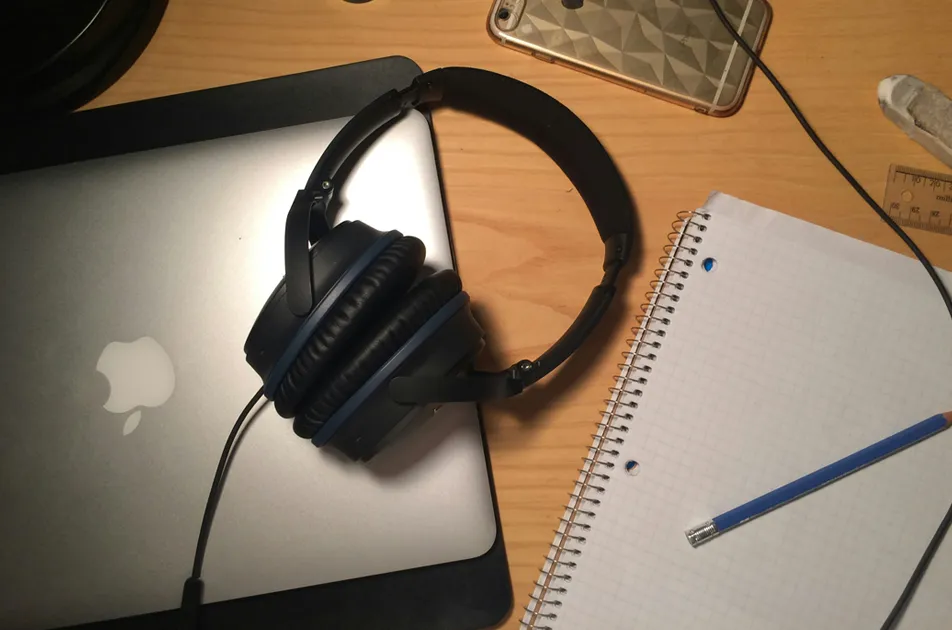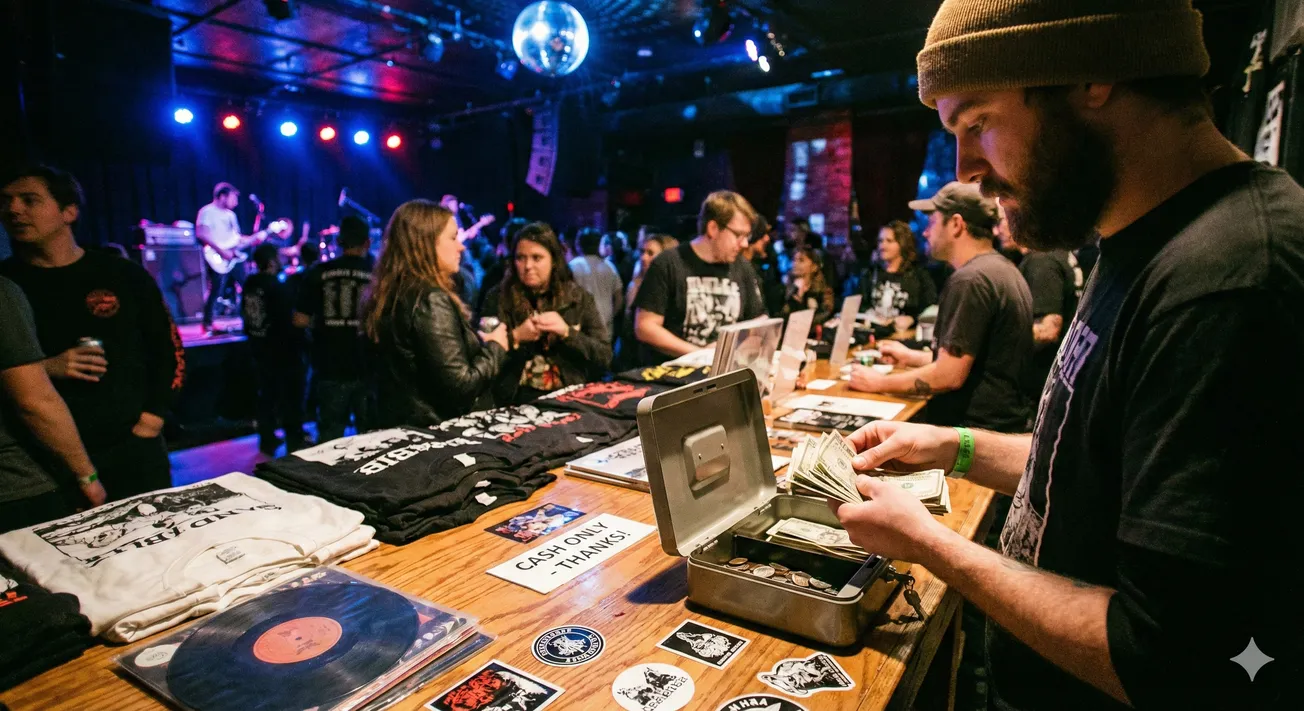Economic uncertainty can crush unprepared musicians – but it can also be your biggest opportunity. Learn how to protect income, boost visibility, thrive while others pull back and more practical advice for independent musicians in uncertain times.
Advice for Independent Musicians in Uncertain Times
by Tony van Veen from the Disc Makers Blog

Today I want to discuss what my 30 years in business have taught me about not just surviving — but thriving — in uncertain times.
When thinking about the current state of affairs, a couple of items are first and foremost on my mind. Number one, what impact will tariffs have on the prices of the things we buy and sell? And number two, will the U.S. economy slow down or even go into recession in light of the tariffs or the trade war with China? Let’s start at a macro level.
From my perspective, the biggest questions for you as an artist are:
- Over the next year or so, will your revenues go up, down, or stay the same?
- Will will my costs go up, down, or stay the same?
Coincidentally, those are the same questions I have for Disc Makers. Let’s start by looking at the impact that tariffs are going to have.
The impact of tariffs
Tariffs will increase the cost of everything that we buy from abroad. Most musical instruments nowadays are made in Asia, with notable exceptions like Gibson and Martin guitars, who do a good chunk, but not all, of their manufacturing in the United States. Tariffs will make instruments and their consumables — strings, drumsticks, picks — more expensive. And of course, life in general will get more expensive.
If imported pineapples are now subject to a tariff, your fruit salad will cost more, leaving less for you to spend on other things. Thankfully, if you’re planning on making CDs or vinyl, pretty much all our disc manufacturing is done right here in the U.S., and the vast majority of it is in our factory outside of Philadelphia, where I am right now. The vast majority of our materials — from polycarbonate used to mold your CDs, to the jewel cases and the paper for your inserts — are sourced in the U.S. and therefore not subject to tariffs. There are a few components that we import because they’re simply not manufactured in the U.S., but on the whole, we expect any tariff impact on pricing for our services to be minimal.
The economy as a whole
But what about the economy at large? Will it slow down? More critically, with personal budgets getting squeezed by tariff inflation, what will be the impact for your fans on a discretionary purchase like music?
We know that consumer confidence dropped measurably since the start of this year. When prices are up and consumer confidence is down, people tend to hold off on major purchases, and this includes things like eating out or going to concerts. This can certainly lead to an economic slowdown if this pattern sustains for a while. Again, the question is: What does this mean for you?
Will fewer people come to your concerts? Will you sell fewer T-shirts and CDs? Do you need to lower your vinyl prices to move more albums? We don’t have hard answers to these questions, but there are certain things that you can do to position yourself optimally for these uncertain times.
First, however, a bit of context. A couple of decades ago, I read a business book by Lou Gerstner, who was CEO of IBM at the turn of the last century. One message from that book has stuck with me all these years, and it’s this: Market share moves in a down economy. What does that mean?
It means that when the economy isn’t looking so rosy, that is when you can make gains compared to your competition. Now, you as an artist may not think that you have competition, but you do. And it’s not any one artist in particular. You are competing for the music fan’s attention and for some of their budget dollars.
In business, what happens is that when the economy slows down, companies stop marketing because they want to save those marketing dollars. That leads them to a downward spiral. Less marketing means fewer sales leads, which means fewer orders, which means lower revenues. In your case as an artist, a down economy, or even just the uncertainty that we face right now, might mean fewer artists investing in releasing new music, going on tour, or putting their music on CD. So back to the business scenario: If we as a business keep marketing while our competitors pull back, we have an opportunity to gain market share.
Ironically, during a recession we may not experience revenue growth even if we keep marketing, because of the downward pressure of the recession. But as soon as the economy turns around — and it always does — business revenues will take off like a rocket, because we were there all along, reminding customers to buy from us when they’re ready to buy, while our competitors pulled back on their messaging and lost customer mindshare. Using that as a guide, here are my tips for how to set yourself up for success during uncertain times.
Setting yourself up for success right now
If you really need a new Yamaha keyboard, buy it right now. That unit on display at your local music store came in before the tariff, and it will be more expensive if you wait 30 or 60 days. Conversely, just reconsider whether you want to buy that keyboard at all right now. During uncertain times, it makes sense to conserve cash.
If your current keyboard still works fine, consider holding off on buying a new one until the storm blows over in six months, or a year, or two years. Book smaller venues. Let me start by saying that by all means, if you are a performing artist, you want to keep performing regardless of the economy. You need to retain that mindshare I talked about with your fans and continue to make new fans.
Performing is great for that. But it’s possible that economic uncertainty could mean smaller crowds. Book your concerts for the next six months or so at a smaller venue than you might usually do, because you’re better off selling out a venue that’s too small than playing to a half-empty room that’s too big. Experiment with pricing.
During uncertain times, people become more budget conscious. You may not need to lower your prices for concert tickets, CDs, T-shirts, or vinyl records, but doing so might lead you to more sales. Experiment a bit.
At one concert, charge $12 per CD. At another, charge $10 or even $9. Track how many units you sell at each concert. Calculate your margin that you make, then charge the price that makes you the most margin going forward. Keep creating.
Remember, if you want market share to move, you’ve got to stay in front of your audience. So even when budgets get tight, keep composing, keep releasing new music, and get your music heard. Sure, there are recording costs, but you can get those down by doing pre-production on your laptop at home, and by making sure you’re super well-rehearsed before going into the studio. And digital distribution is virtually free these days.
Maintaining a regular release schedule is critical for you to retain that mindshare with your fans. You don’t want them to forget about you. Buy smaller quantities. If you don’t know how much merch you’re going to sell, place a smaller order.
Digital production has made ordering CDs or T-shirts super affordable in small quantities. At Disc Makers, you can get 100 CDs in jackets for as little as $1.59 each. And if you’re not sure you can sell 100 units or give them away to fans, you can buy 50 — though the cost per disc does go up. Heck, you can even buy vinyl LPs in quantities as small as 100 records.
And finally, keep marketing yourself. Stay on your socials. Keep creating those TikToks. Work your email storytelling magic.
Those things are all free, and they keep you in front of your fans. Remember what I said earlier — market share moves in a down economy. I’ve seen this happen with our business, and it can happen to you. If you keep creating, keep performing, and keep releasing music, you may not be able to immediately measure the positive impact while the economy is still weird.
But once things turn around, you’ll be poised to make a big leap forward — in streams, in concert tickets, and in product sales. So even though things are feeling uncertain right now, don’t let that hold you back from continuing to develop your music career.
Check out my video on Advice for Independent Musicians in Uncertain Times and share with your fellow indie artists that need these tips!
About Tony van Veen: Tony van Veen is the CEO of DIY Media Group, the parent company of Disc Makers and BookBaby. As a college student, he played in indie bands, created his own LPs, cassettes, and t-shirts, and sold them at shows. Today, he collects CDs, vinyl LPs, and concert t-shirts to support the artists he loves.





